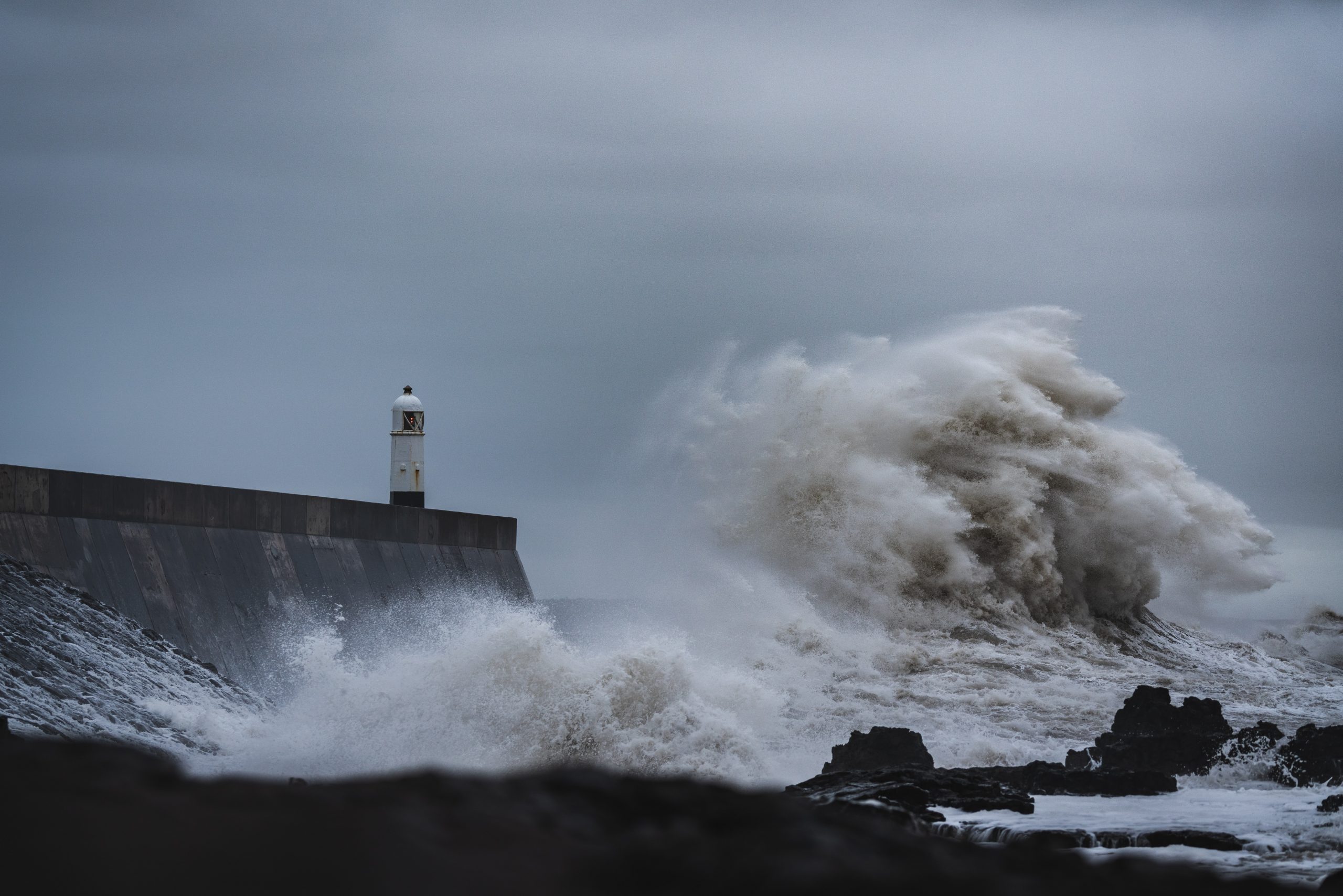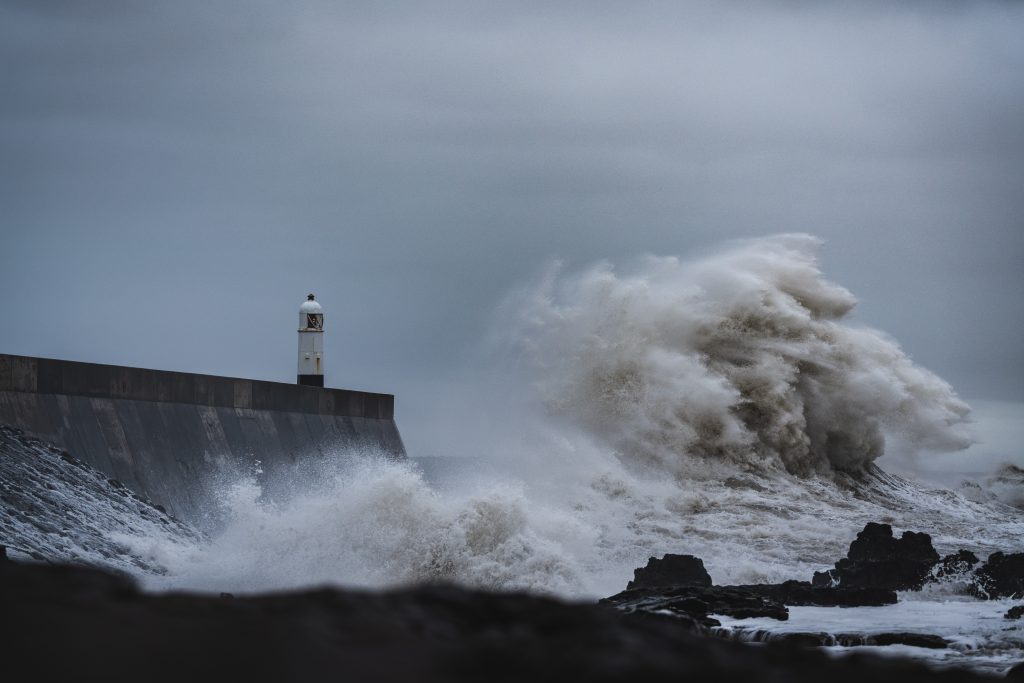Much of the UK is currently being battered by Storm Eunice, with the South of England in particular facing the brunt of the storm with winds of over 100mph. Millions of people have been told to stay at home and the high winds have led to power cuts, travel cancellations, flooding, and a number of major bridges being closed.
For decades these ‘acts of god’ have been seen as unpredictable, leaving us unable to protect ourselves from these disastrous situations. This is of course true to an extent, with weather patterns largely out of our control. However, to say that there is nothing we can do to protect ourselves from extreme weather is both folly and ignorant.
With weather patterns set to become more unpredictable because of climate change, these weather events are only going to become more commonplace. Experts are now able to confirm that, for example, storm surges are likely to be more severe because sea levels are rising, and storms are getting demonstrably stronger in terms of their wind speed. Similarly, the UN Intergovernmental Panel on Climate Change believes that the UK will receive about 10 percent more rainfall on average per year by 2100 compared to 1986–2005. With increasing temperatures, this rainfall is scheduled to become heavier and more concentrated with areas at risk of both flooding and drout growing as a result.
Given what we already know about the role of capitalism as a major cause of climate change, it is obvious that it is contributing to the environmental destruction currently facing the UK. However, this crisis goes beyond this, and it is important to highlight the role of neoliberal domestic policies over the last forty years that have weakened our position to combat these extreme weather events.
Neoliberalism as an economic concept relies on the assumption that the market is self-regulating and is the most efficient unit of organisation. As a result, neoliberalism encourages privatisation, austerity and deregulation to enable market competition. Not only this, it heavily combats any semblance of collectivism beyond the ‘nuclear’ family structure. For more reading on the function of neoliberalism – consider this article published last year.
It is evident that neoliberalism fails us in nearly every sector, but this is seen most overtly with weather defences. Weather defences require investment and forethought – something neoliberalism seeks to avoid with all its might. Currently, over 5 million homes and businesses in England are at risk from flooding and the average economic cost of flooding in England is around £2bn a year, expected to rise to £3bn by the 2080s unless further warming can be avoided.
In general, neoliberal economic policies have sought to avoid government intervention where possible, only increasing spending after disasters have taken place. This is particularly true of the successive Tory governments and the Blair/Brown administration of the early 2000s. The Pitt Review was published after the 2007 floods in England, which resulted in 13 deaths and around £6.5 billion worth of damage. It highlighted the complex system of governance caused by privatisation and deregulation and also highlighted the lack of funding for local government whereby 70% said they were struggling to find the resources to carry out recovery work.
Back to Storm Eunice and these issues remain just as prevalent. In the last decade, local councils’ spending power has been reduced by a third at a time when demand for services has soared and 25 councils in England (7.4%) are at high or acute risk of financial failure. These are year-round issues, but they are exacerbated in times of crisis and the extreme weather events, coupled with the lasting effects of Covid-19, are pushing more and more councils to the brink. With limited budgets, the first thing to be cut will be “non-essential” and preventive spending. Local authorities can barely balance the books for their statutory duties, never mind additional infrastructural spending. As a result, when crises such as Storm Eunice roll around, they are left with little to no defence against falling trees, burst riverbanks and damaged roads.
In addition to cuts to local government, a decade of Tory austerity has also seen further privatisation and deregulation. Travel has of course been disrupted as a result of the current storm, and it is right that all but essential travel is to be avoided. However, passengers who must travel are so often left in the lurch with crucial investment in our infrastructure avoided while ticket prices go up and up. When British Rail remained in public ownership with other transport networks it was possible to support passengers from one network to another. Meanwhile the 28 major rail operators in the UK only communicate with one another if they’re in dire straits.
The crisis in our rail and public transport sector is reaching boiling point and this is most acutely evident when adverse weather conditions drag the country to a halt with commuters and staff left to mop up the consequences while shareholders continue to take record dividends. If we were able to invest these dividends (totalling over £1 billion from 2013-2019) into stronger infrastructure that worked for people rather than profit, we would be in a much healthier position than we are today.
In much the same way, the ongoing energy crisis is going to leave workers to the mercy of the market, and with worsening winters expected in the coming years, we will see people freezing to death in their homes become more commonplace. The UK Government are trying to claim they no longer represent neoliberal interests, and in many ways they don’t, but the way they have handled the energy crisis highlights their unwavering support for the market as the most efficient unit of organisation.
If we brought our energy networks into public ownership, it is estimated that we’d save £3.7 billion a year. This money could be used to invest in more resilient infrastructure, particularly important given tens of thousands of people across much of England and Wales are currently without power as a result of Storm Eunice.
All of these compounding crises, while complex and distinct, suffer from the same fatal mistake of neoliberalism in assuming market structures work in anyone’s best interests but shareholders. More fundamentally, the obsession with the individual which is at the heart of neoliberalism operates in direct opposition to the collective response required to deal with any kind of crisis.
We desperately need more funding for public infrastructure across all levels of government. Not only now but especially in times of crises. Moreover, we absolutely must continue our efforts to renationalise major state infrastructure. Companies like Iberdrola and Abellio don’t care about ordinary families affected by poor services. They only care about the profits they’re able to offer to their shareholders. So, let’s put paid to the idea that neoliberalism offers us anything. It is the reason we’re in this mess and it’s the reason we’re continually at risk of subsequent crises. Let’s boot it out alongside any Party that seeks to uphold it.
Peter Stoddart, is the Treasurer of the YCL




